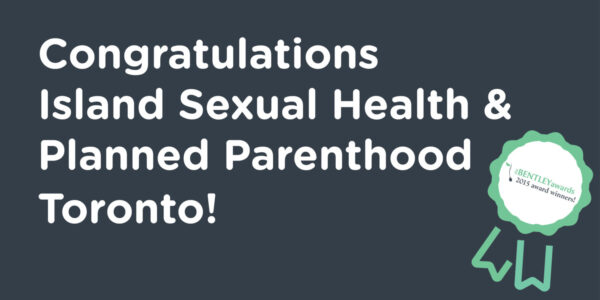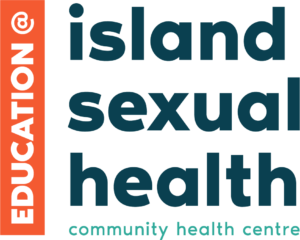Education program funding crisis

Program background
As the only agency in Greater Victoria that provides SOGI framed, pro-choice, comprehensive sexual health education, Island Sexual Health (ISH) has had the privilege of facilitating sexual health education workshops to the Greater Victoria Area since 1986. Our current education program is robust in reach; typically educating 20,000+ participants in grades 4-12 through 750+ class sessions each year. Since 1986, we have built trusting relationships with our local educators and community to deliver comprehensive sexual health education to generations of Victoria youth and their families/caregivers and community members through school classes, youth training; professional development and parent education. During the past 39 years, our education program has engaged, educated and supported more than 500,000 participants around vital health topics such as puberty, consent, healthy relationships, sexual decision making, gender and sexual orientation, contraception, and STBBI prevention and safety in age appropriate, sensitive, and evidence-based sessions that meet and exceed the MOECC Provincial learning outcomes. Our education program provides a continuum of education services following our sessions: we also have operate a youth Q&A texting line that receives more than 3,000 text questions per year and the ability to directly connect youth with access to clinical sexual health services.
Funding challenges
What is not often known about ISH’s education program is that, as a non-profit, we do not receive any dedicated funding to run our education program. The program is solely reliant on piecing together workshop honorarium, grants, donations and fundraising to operate. In 2025, it has become financially impossible to piece diminishing bits of funding together to operate such a robust program that meets the high standard of education that ISH is known for. Until 2022, our education program qualified to apply for, and subsequently receive, a BC Government
Community Gaming Grant for Program Funding which provided roughly one-third of our $295k annual budget. However, when ISH was designated a Community Health Center in 2020 by the Ministry of Health, the education program was rendered ineligible to apply for the Community Gaming Grant. We were unsuccessful in appealing this decision from the BC Gaming Commission because as a CHC we are now classified exclusively as a health care organization which the Gaming Grant does not fund. This ineligibility left us with the loss of one-third of our program funding and the need to make it up from other sources.
The gaming grant not only subsidized the cost of delivering the program to our school partners; it also allowed us to successfully secure other funding partners to offset other costs and offer additional programming for groups like Diversity Clubs, Peer Advocacy Groups and Youth Advisory Committees. In attempt to offset this funding loss and to ensure program equity and continuity for school partners and the educators/students/families who have come to rely on us; we took cost saving measures by: decreasing the hours of our education team staff, streamlining our workshop offerings, increasing the cost of our honorarium, and applying for more grants. Even with these modifications, the cost of delivering this program continues to rapidly outpace the financial resources available. While we ask for an $80 honorarium per workshop, the true cost of workshop delivery is much higher. To make it accessible and equitable for each school/organization, we have been subsidizing it to the point of running a significant deficit.
Why ask for a re-assessment for Gaming Grant eligibility?
We are calling for a re-assessment for eligibility because 1) our education program fulfills the criteria for the BC Gaming Commission’s eligibility for the Human and Social Services Stream as an organization (according to the Gaming Grant Guidelines) that “deliver programs that improve the quality of life in a community by supporting the wellbeing of children, youth, families and/or seniors; by addressing equality issues (e.g., gender, LGBTQ2S+, race, etc.); by addressing the unmet needs of under-served groups; or, by providing public outreach and education regarding important social issues.” and 2) other organizations who are delivering both clinical services and education programming in BC continue to be eligible to apply for Human and Social Services gaming grant fund and receive funding through this stream.
It is no longer economically feasible to subsidize this program, and are now at a critical juncture which, without further support, we will be forced to make significant modifications to our education programming for the 2025/2026 school year which may mean discontinuation. It goes without saying that if we are unable to continue our programming, the loss of education will create a dangerous void; leaving our 20,000+ participants, educators and their families/caregivers without guaranteed access to the appropriate, accurate sexual health education and community resources they’ve come to rely on. Our youth, families/caregivers, and communities deserve this education.
How to help
Many folks have kindly asked how they can help our support our education program during this challenging time. We have a compiled the following list of actions that will greatly help our education program:
- Email a letter of support requesting your MLA to advocate the gaming commission on our behalf for gaming grant application eligibility reassessment.
- Here is a letter template that can be personalized (highlighted portions to be completed), copied and emailed to your constituency MLA. Please also cc our constituency’s MLA Nina Krieger and our education program in your email.
- Share your impact story if you been a participant, a family member of a participant, a service provider in any of our education sessions or if you are a supporter who would like to offer your opinions about the importance of sexual health education
- Share Recent Media Coverage about our situation:
- Times Colonist Article by Hannah Link (Original article on Saturday June 21, 2025)
- Times Colonist Article by Hannah Link (Follow up article on Thursday June 26, 2025)
- CFAX’s Interview with Josh Hylden (Tuesday June 24, 2025)
- Saanich News Article by Oiivier Lauirin (Thursday June 26, 2025)
- Make a donation
- Host a fundraiser (email our educator director with your ideas!) on our behalf
- Share this post with people in your life who share the same values for public heath education, sexual and reproductive rights, youth rights, and community wellbeing
Impact statements
- Students were made much more comfortable reaching out to staff and to ISH professionals with questions and concerns. Students advocated for themselves more in their relationships and conversations about their health. Students received actionable information that they’d never encountered before about safety and resources for further info. Students connected more with the community, visited the clinic, texted questions to the anonymous line, and shared the text line phone number for questions with students at other schools!
- I remember these workshops started talking about puberty in grade 4 (and later on sexuality) in a way that normalized the changes I was experiencing in my body, the feelings I was having, and the way I was relating to my family and friends. When you’re a teenager, not many people will give information without lecturing or judging you, but the educator did. Every year I saw her, I knew that I could ask what I needed to know about without shame or embarrassment. I am now in university and I know that the choices I make in my life are connected back to those classes. Because of those classes I knew about their clinic and helped lots of my friends go there when they needed it. It kept us safe.
- ISH’s education program has made a difference for many students. Their presentations create a safe space where students feel comfortable discussing healthy relationships, puberty, sexuality, and identity. The educators’ openness helps normalize these conversations, and students leave with a stronger understanding of consent, boundaries, and available supports.
- The loss of ISH’s Education Program would widen the already significant knowledge gap around sexual health, contraception, and consent. It would destroy the opportunity to build trust between students, their parents, and staff around open and honest communication. It would result in further strain on health resources in the community, as preventable sexual health problems would occur with more frequency due to student ignorance and an unwillingness to ask questions.
- The fact that ISH serves as an easy place to go for this sort of thing is invaluable, Sexual Health is generally not something that receives a lot of awareness despite it being relevant to almost everyone.
- While sexual health is part of the curriculum, it is often something that teachers are uncomfortable covering on their own. Without ISH I fear many students would no longer receive sexual health information at school, or that it would be very minimal.
- The loss of Island Sexual Health’s education programming would leave a significant gap in our school’s ability to provide accurate, inclusive, and non-judgmental sexual health education. Without their expertise, many students may miss out on vital information about consent, healthy relationships, and personal boundaries—topics they often feel more comfortable exploring with external educators. ISH’s programming also plays a key role in normalizing conversations around gender and sexual diversity, helping to create a more accepting school culture. Their absence would limit access to trusted community resources and reduce the overall quality and reach of our sexual health education.
- Students using the anonymous questions have been able to speak out about unsafe situations and therefore have gotten the help/resources they need. All students get the same information and in timely manner so the whole grade group is able to gain the same knowledge in the same format, creating an understanding of community within the learning.
- The loss of this program would be huge. Young people need people to tell them the real information about sex – we can get information any/everywhere but so much of it is not true. How is a young person going to know where to go for birth control, tests or the really important questions like about gender identity if they can’t/won’t talk to their parents or teachers?
- The loss of this program will disrupt programming for a lot of students and put pressure on teachers to step into a role they are perhaps not prepared for. For students this would be a huge loss as having an expert to help them learn about sexual health is invaluable. Students do not always connect with their classroom teacher and I think it is very valuable to have an independent educator available to ensure that the information is communicated without prejudice.
- Island Sexual Health presentations act as an enhancement to the curriculum delivered by teachers. Losing ISH’s education program would be a setback for our students because their presentations are much more comprehensive. Their presentations help create a safe, inclusive space where students feel comfortable discussing sensitive topics and learning about consent, boundaries, and diversity—things that are hard to teach without their expertise.
- This program deserves stable funding. It’s not easy to talk about sexuality to teenagers but to talk with them and treat them with validation, respect, and compassion while educating them as a community member is invaluable. I am so grateful to Island Sexual Health.
- What stands out most is their commitment to inclusion—every student is seen, heard, and engaged. They come to understand that they have another trusted adult to turn to, another perspective to consider, and another layer of support as they grow. In a world where children need more positive role models and dependable adults, the presence of ISH leaders is not just impactful—it’s essential.
- Island Sexual Health fills a vital role in our school community. Their educators bring expertise, empathy, and inclusivity that deeply resonate with students. Without their programming, we’d lose not just valuable content, but trusted voices that help youth feel safe, respected, and empowered. Their work strengthens not only individual understanding, but also the broader culture of care and respect in our schools.
Thank you so much for your support. You are so appreciated.





